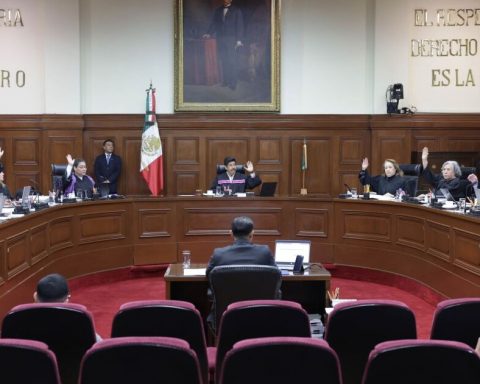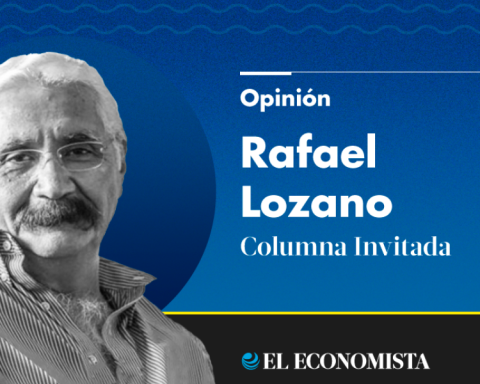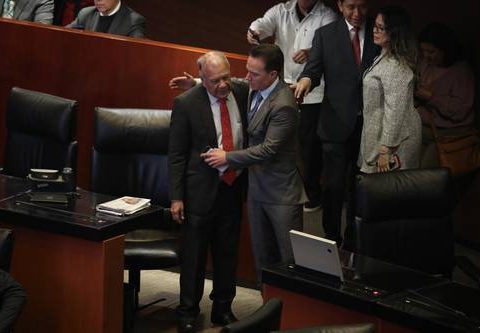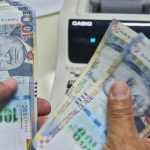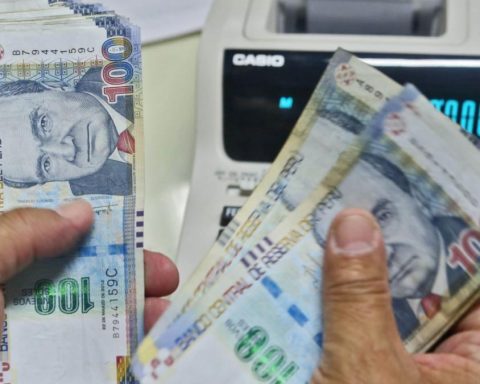“These are the unfortunate costs of reducing inflation. But a failure to restore price stability would mean much greater pain,” he added.
As that pain mounts, Powell said, people shouldn’t expect the Fed to change quickly until the inflation problem is fixed. Some investors anticipate that the Fed will hesitate if unemployment rises too quickly, with some even eyeing a rate cut next year, a prospect that Fed policymakers have strongly backed away from in recent weeks.
On the contrary, some authorities have indicated that even a recession would not deter them if prices do not convincingly return to the 2% target. Powell gave no indication of how high rates might rise before the Fed ends monetary tightening, only that they will move as high as necessary.
“The historical record strongly cautions against premature policy easing,” Powell said. “We have to keep it up until the job is done. History shows that the labor costs of reducing inflation are likely to rise late.”
Underscoring the same “raise and hold” message, Atlanta Fed President Raphael Bostic told Bloomberg TV that once the central bank’s policy rate is 100 to 125 basis points above the current range from 2.25%-2.50%, “we should stay there for a long time”.
Bond markets appeared to take comments signaling a path of higher interest rates for longer to heart, with traders reinforcing bets on a third consecutive 75 basis point rate hike at the 20-20 monetary policy meeting. September 21 and they valued that the rate will reach the range of between 3.75%-4.00% next March.
Powell’s candid acknowledgment of the looming pain for households “caught investors by surprise and underscores how serious they are about raising rates to fight inflation,” said Ryan Detrick, chief market strategist at Carson Group. “Hope for a moderate turnaround was crushed, at least for now.”
Powell did not hint at what the Fed might do at its next monetary policy meeting on September 20-21, except to say that it would depend on the “entirety” of the data by then.
Recent data has shown a small decline in inflation. The personal consumption expenditure price index, a measure closely watched by the Fed, fell in July to 6.3% annually from 6.8% in June. Inflation expectations based on the University of Michigan measures also moderated in July.
Still, “a single month’s improvement is well below what the Committee will need to see before we are confident that inflation is coming down,” Powell said, referring to the Federal Open Market Committee that sets monetary policy. of the central bank.
Other statistics have shown what Powell said was “strong underlying momentum”, with the labor market “clearly unbalanced” as job openings far outnumber the number of unemployed.
Deciding how much to raise rates “will depend on the totality of incoming data and the evolution of the outlook,” Powell said, with more jobs and inflation reports to come.
The Fed has become increasingly open that its policies could lead to a rise in the US unemployment rate, currently at 3.5%, a level that has not been eclipsed in more than 50 years.
But to quell inflation, Fed officials have said they must curb demand for goods and services, raising the cost of credit and making it more expensive to finance homes, cars and business investments. As the process progresses, as is beginning to happen, particularly in the real estate market, companies may adjust their hiring plans or even resort to layoffs.
Powell delivered his speech to a room full of economists and international monetary policymakers gathered to discuss how the COVID-19 pandemic has placed new constraints on the world economy and the implications of that for central banks.
Inflation is now his main concern, and Powell’s comments at the symposium, organized by the Kansas City Fed, set a tone that is likely to be registered in global markets. It was also a message that major central banks are preaching in unison that rate hikes are meant to slow economies, and a commitment that will not stop until inflation subsides.

